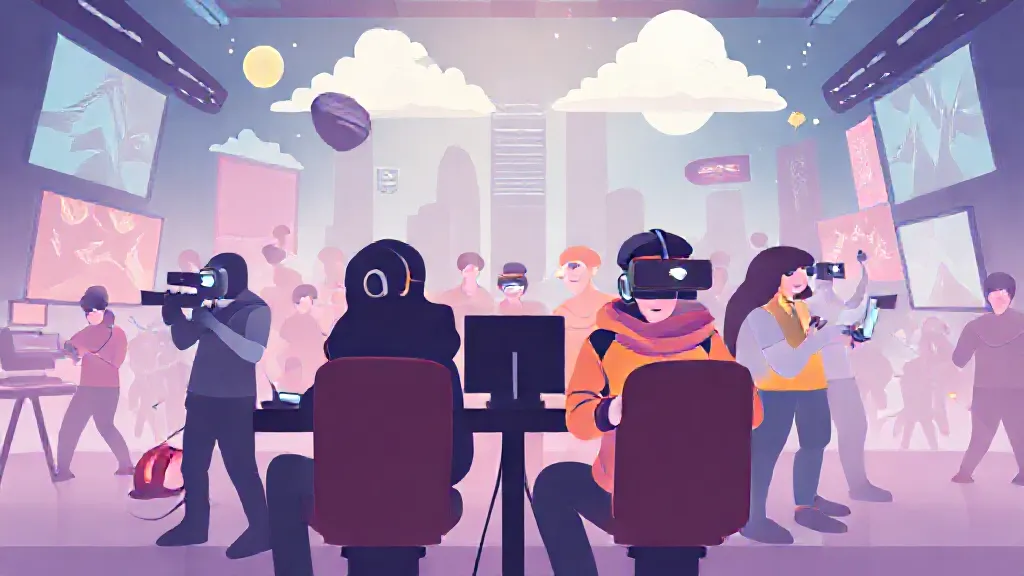The gaming industry is undergoing a significant transformation, influenced by technological advancements, changing consumer preferences, and societal trends. As we look to the future, several key trends are emerging that are likely to shape the gaming landscape in profound ways. These trends include the rise of cloud gaming, the integration of virtual and augmented reality, the expansion of mobile gaming, the growth of esports, and the increasing importance of inclusivity and diversity in game design.
The Rise of Cloud Gaming
Cloud gaming is becoming a dominant force in the gaming industry, allowing players to stream games directly from the cloud without the need for high-end hardware. Services like Google Stadia, NVIDIA GeForce Now, and Xbox Cloud Gaming are leading the charge, providing gamers with access to a vast library of titles across various devices. This trend not only democratizes access to gaming but also enables developers to reach a broader audience.
As internet speeds improve and latency issues are resolved, cloud gaming is expected to become a mainstream option for casual and hardcore gamers alike.
Virtual and Augmented Reality Innovations
Virtual reality (VR) and augmented reality (AR) are revolutionizing the way players experience games. With advancements in technology, VR headsets are becoming more affordable and user-friendly, while AR applications are integrating seamlessly into everyday life.
Titles like "Beat Saber" and "Pokémon GO" have demonstrated the potential of these technologies to create immersive and interactive experiences. As developers continue to explore the possibilities of VR and AR, we can expect to see more innovative gameplay mechanics and storytelling techniques that take advantage of these immersive technologies.
The Mobile Gaming Boom
Mobile gaming has exploded in popularity over the past decade, with millions of players engaging through smartphones and tablets.
This trend is reshaping the gaming landscape, as developers focus on creating high-quality, engaging experiences that can be played on the go. The success of games like "Fortnite" and "Genshin Impact" highlights the potential for mobile titles to compete with traditional console and PC games. As mobile technology continues to advance, we can anticipate even more sophisticated gaming experiences that leverage the unique capabilities of mobile devices.
The Esports Phenomenon
Esports has emerged as a cultural powerhouse, drawing millions of viewers and participants worldwide. Competitive gaming has evolved from niche tournaments to large-scale events, with professional teams, sponsorships, and dedicated fan bases. Titles such as "League of Legends," "Dota 2," and "Overwatch" have solidified their place in the esports arena, contributing to a growing industry that encompasses streaming platforms, merchandise, and live events.
The future of gaming will likely see even greater integration of esports into mainstream entertainment, with more opportunities for players to pursue careers in competitive gaming.
Inclusivity and Diversity in Game Design
As the gaming community becomes more diverse, the demand for inclusive and representative game design is increasing. Developers are recognizing the importance of creating characters, narratives, and gameplay experiences that resonate with a broader audience.
This trend is not only beneficial for players but also enhances the creativity and depth of storytelling in games. Titles like "The Last of Us Part II" and "Celeste" have received acclaim for their representation of LGBTQ+ characters and mental health themes. As the industry continues to evolve, we can expect more games to prioritize inclusivity and diversity in their design processes.
Sustainability in Gaming
The gaming industry is also beginning to address sustainability concerns, as players and developers alike become more environmentally conscious. From reducing carbon footprints in game production to promoting digital distribution over physical copies, the industry is taking steps to minimize its impact on the environment. Initiatives such as carbon-neutral gaming events and eco-friendly packaging are becoming more common, reflecting a growing awareness of sustainability among both consumers and companies.
As this trend continues, we can expect to see more innovative solutions that prioritize environmental responsibility in gaming.
The Impact of Artificial Intelligence
Artificial intelligence (AI) is set to play a pivotal role in shaping the future of gaming. From enhancing NPC behavior to personalizing player experiences, AI technologies are being integrated into various aspects of game development.
Machine learning algorithms can analyze player behavior and preferences, allowing developers to create more engaging and tailored experiences. Additionally, AI-driven tools are being used to streamline game design processes, enabling developers to focus on creativity and innovation. As AI continues to advance, its influence on gaming will likely expand, leading to new possibilities for gameplay and storytelling.
Conclusion: The Future of Gaming
The trends shaping the future of gaming are diverse and multifaceted, reflecting the industry's dynamic nature. As technology continues to evolve and societal expectations shift, the gaming landscape will undoubtedly transform in exciting ways. By embracing cloud gaming, VR and AR innovations, mobile gaming, esports, inclusivity, sustainability, and AI advancements, the industry is poised for a vibrant future that will cater to a wide range of players and experiences.
With these trends in mind, gamers can look forward to an era of unprecedented creativity and engagement in the world of gaming.
